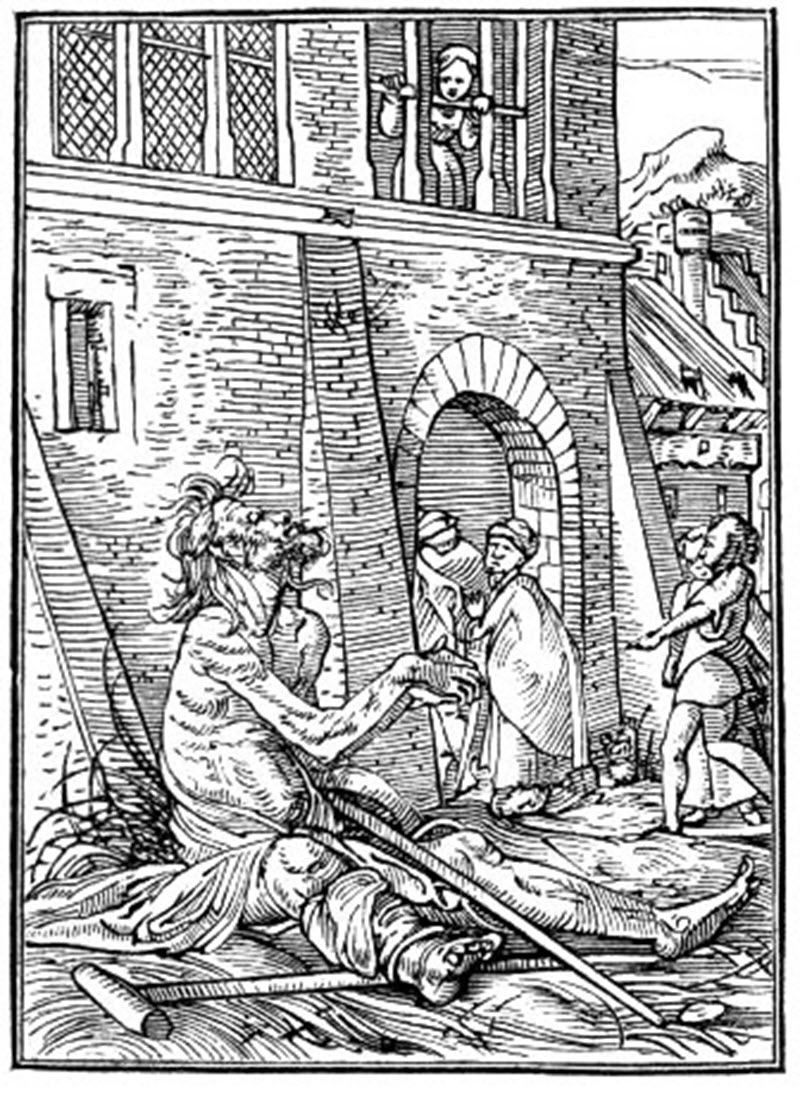
An emaciated, dying beggar waits for help outside of what may be a hospital. People look but offer no assistance. Ultimately we all die alone.
One of the things that makes Holbein's Dance of Death an enduring masterpiece is his depiction of every level of society, which drives home the point that we are all mortal in the end. In other woodcuts, Holbein depicted wealthy merchants and potentates. Here is a half starved beggar clothed only in rags. But in the end, there is no difference between the mighty and the weak.
This woodcut from Holbein's Dance of Death is interesting in its depiction of social institutions and conditions at the time. We see a row of patients heading into the medieval hospital. One parent is carrying a sick child. Another person looks out from a second floor window. It is interesting that hospitals existed at the time and appear to have been well organized and substantial institutions. Of course, the care provided was likely not very good, given the low level of knowledge concerning hygiene and how diseases were transmitted.
Significantly, Holbein's depictions of medieval society goes from high to low, depicting first emperors and popes, and then finally, in this last woodcut, the lowest of the low, an impoverished beggar. Yet all are under the power of death.
Previous: The Wagon Driver
Next: The Final Judgment
Holbein - the Dance of Death.